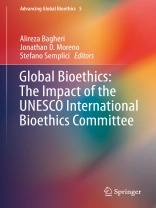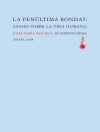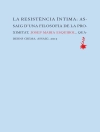The UNESCO International Bioethics Committee is an international body that sets standards in the field of bioethics. This collection represents the contributions of the IBC to global bioethics. The IBC is a body of 36 independent experts that follows progress in the life sciences and its applications in order to ensure respect for human dignity and freedom. Currently, some of the topics of the IBC contributions have been discussed in the bioethics literature, mostly journal articles. However, this is a unique contribution by the scholars who developed these universal declarations and reports. The contributors have not only provided a scholarly up to date discussion of their research topics, but as members of the IBC they have also discussed specific practical challenges in the development of such international documents. This book will be suited to academics within bioethics, health care policy and international law.
Inhoudsopgave
Preface; A. Bagheri, J. Moreno and S. Semplici.- Chapter One Globalizing Bioethics Through, Beyond and Despite Governments; Henk ten Have.- Chapter Two The UNESCO Universal Declarations: Paperwork or Added Value to the International Conversation on Bioethics? The example of the Universal Declaration on Bioethics and Human Rights; Michèle Stanton-Jean.- Chapter Three Twenty Years of the International Bioethics Committee: Achievements and Future Priorities; Nouzha Guessous.- Chapter Four The Universality of the UNESCO Universal Declaration on Bioethics and Human Rights; Richard Magnus.- Chapter Five Consent and Bioethics; Sheila A.M. Mc Lean.- Chapter Six Global Bioethics as Social Bioethics; Stefano Semplici.- Chapter Seven Ethics and Traditional Medicine.- Emilio La Rosa Rodríguez Chapter Eight Biobanks: Balancing Benefits and Risks; Ewa Bartnik and Eero Vuorio.- Chapter Nine The Risk of Discrimination and Stigmatization in Organ Transplantation and Trafficking; Alireza Bagheri.- Chapter Ten Dust of Wonder, Dust of Doom: A Landscape of Nanotechnology, Nanoethics, and Sustainable Development; Fabio Salamanca-Buentello and Abdallah S. Daar.- Chapter Eleven The National Bioethics Committees and the Universal Declaration on Bioethics and Human Rights: Their Potential and Optimal Functioning; Jean F. Martin.- Chapter Twelve The UNESCO International Bioethics Committee and the Network of Ethical Advisory Bodies in Europe: An Interactive Relationship; Christiane Druml.- Chapter Thirteen The Impact of the UNESCO International Bioethics Committee’s Activities on Central and Eastern Europe; Olga Kubar and Jože Trontelj.- Chapter Fourteen Bioethics in Arab Region and the Impact of the UNESCO International Bioethics Committee; Sadek Beloucif and Mohamed S. Ben Ammar.- Chapter Fifteen The Impact of the UNESCO International Bioethics Committee on Latin America: Respect for Cultural Diversity and Pluralism; Claude Vergès, Delia Sánchez, Volnei Garrafa and Andrés Peralta.- Chapter Sixteen Bioethics Development in Africa: The Contribution of the UNESCO International Bioethics Committee; Monique Wasunna, Aïssatou Toure and Christine Wasunna.- Chapter Seventeen Bioethics in East Asia: Issues and Development; Myongsei Sohn.- Contributors.- Index












